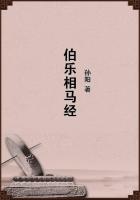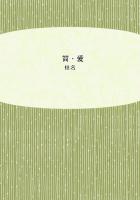"Know all men by these Presents, That I, Thomas Auld, of Talbot county, and state of Maryland, for and in consideration of the sum of one hundred dollars, current money, to me paid by Hugh Auld, of the city of Baltimore, in the said state, at and before the sealing and delivery of these presents, the receipt whereof, I, the said Thomas Auld, do hereby acknowledge, have granted, bargained, and sold, and by these presents do grant, bargain, and sell unto the said Hugh Auld, his executors, administrators, and assigns, ONE NEGRO MAN, by the name of FREDERICK BAILY, or DOUGLASS, as he callls{sic} himself--he is now about twenty-eight years of age--to have and to hold the said negro man for life.
And I, the said Thomas Auld, for myself my heirs, executors, and administrators, all and singular, the said FREDERICK BAILY_alias_ DOUGLASS, unto the said Hugh Auld, his executors, administrators, and assigns against me, the said Thomas Auld, my executors, and administrators, and against ali and every other person or persons whatsoever, shall and will warrant and forever defend by these presents. In witness whereof, I set my hand and seal, this thirteenth day of November, eighteen hundred and forty-six. THOMASAULD"Signed, sealed, and delivered in presence of Wrightson Jones.
"JOHN C. LEAS.
The authenticity of this bill of sale is attested by N.
Harrington, a justice of the peace of the state of Maryland, and for the county of Talbot, dated same day as above.
"To all whom it may concern: Be it known, that I, Hugh Auld, of the city of Baltimore, in Baltimore county, in the state of Maryland, for divers good causes and considerations, me thereunto moving, have released from slavery, liberated, manumitted, and set free, and by these presents do hereby release from slavery, liberate, manumit, and set free, MY NEGRO MAN, named FREDERICKBAILY, otherwise called DOUGLASS, being of the age of twenty-eight years, or thereabouts, and able to work and gain a sufficient livelihood and maintenance; and him the said negro man named FREDERICK BAILY, otherwise called FREDERICK DOUGLASS, I do declare to be henceforth free, manumitted, and discharged from all manner of servitude to me, my executors, and administrators forever.
"In witness whereof, I, the said Hugh Auld, have hereunto set my hand and seal the fifth of December, in the year one thousand eight hundred and forty-six.
Hugh Auld"Sealed and delivered in presence of T. Hanson Belt.
"JAMES N. S. T. WRIGHT"
<291 FREEDOM PURCHASED>they would tolerate the idea of my returning to this, my native country. To this commercial transaction I owe my exemption from the democratic operation of the Fugitive Slave Bill of 1850. But for this, I might at any time become a victim of this most cruel and scandalous enactment, and be doomed to end my life, as I began it, a slave. The sum paid for my ******* was one hundred and fifty pounds sterling.
Some of my uncompromising anti-slavery friends in this country failed to see the wisdom of this arrangement, and were not pleased that I consented to it, even by my silence. They thought it a violation of anti-slavery principles--conceding a right of property in man--and a wasteful expenditure of money. On the other hand, viewing it simply in the light of a ransom, or as money extorted by a robber, and my liberty of more value than one hundred and fifty pounds sterling, I could not see either a violation of the laws of morality, or those of economy, in the transaction.
It is true, I was not in the possession of my claimants, and could have easily remained in England, for the same friends who had so generously purchased my *******, would have assisted me in establishing myself in that country. To this, however, I could not consent. I felt that I had a duty to perform--and that was, to labor and suffer with the oppressed in my native land.
Considering, therefore, all the circumstances--the fugitive slave bill included--I think the very best thing was done in letting Master Hugh have the hundred and fifty pounds sterling, and leaving me free to return to my appropriate field of labor. Had I been a private person, having no other relations or duties than those of a personal and family nature, I should never have consented to the payment of so large a sum for the privilege of living securely under our glorious republican form of government.
I could have remained in England, or have gone to some other country; and perhaps I could even have lived unobserved in this.
But to this I could not consent. I had already become some<292>what notorious, and withal quite as unpopular as notorious; and I was, therefore, much exposed to arrest and recapture.
The main object to which my labors in Great Britain were directed, was the concentration of the moral and religious sentiment of its people against American slavery. England is often charged with having established slavery in the United States, and if there were no other justification than this, for appealing to her people to lend their moral aid for the abolition of slavery, I should be justified. My speeches in Great Britain were wholly extemporaneous, and I may not always have been so guarded in my expressions, as I otherwise should have been. Iwas ten years younger then than now, and only seven years from slavery. I cannot give the reader a better idea of the nature of my discourses, than by republishing one of them, delivered in Finsbury chapel, London, to an audience of about two thousand persons, and which was published in the _London Universe_, at the time.[9]















